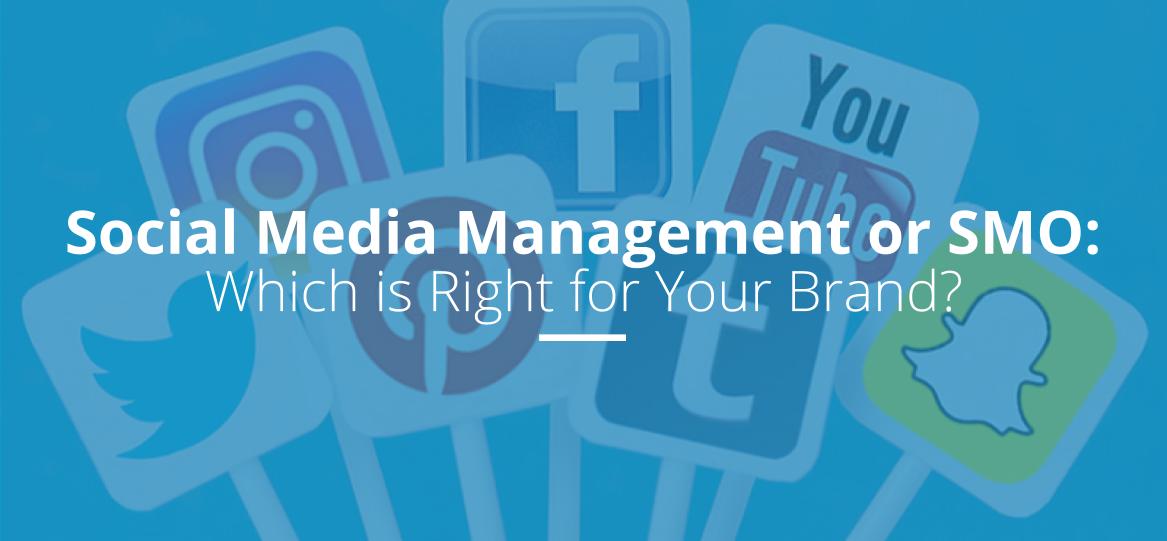Is SEO Dead in 2018?
Back in 2016, we checked in with an array of marketing experts to see if they thought SEO still had a place in contemporary marketing strategy by asking them to complete the statement, “SEO is not dead, however…”
Though everyone agreed that SEO was alive and well, a lot has changed in those two-and-a-half years. As we move into fall of 2018, we wanted to check in on our experts, dig back into those answers, and see if they still hold up for 2018, 2019, and beyond.
These guys are the best of the best in SEO, so see whether their SEO advice and predictions in 2016 held true into the future.
Garth O’Brien

@garthobrien
Back in 2016, Garth told us:
“SEO is not dead, however … if you believe the opposite get ready to watch your competitors take all your organic traffic.”
Garth is still spot on: Not only does SEO still reward the diligent, it punishes those who ignore it. Pay attention to all three pillars of SEO because they are all equally important: Code and Structure, Content and Keywords, and finally Authority (Links and Social engagement).
Here in 2018, Garth is still evangelical about SEO… In fact, he’s been touring the country with workshops with titles such as “Why You Need an SEO Evangelism Program.” It’s safe to say that Garth hasn’t changed his tune.
Jordan Kasteler

At the time we last engaged him, Jordan told us,
“SEO is not dead, however… bad SEO is. Adapt from a strict-SEO skillset to a broader marketing skillset. Be a Swiss-army knife of marketing with knowledge and experience in all facets, but be an expert in one area still.”
This one’s an awesome tip from Jordan because it’s actually more true in 2018 than it was in 2016! Google and other search engines have been working for decades to encourage higher quality from publishers in order to improve user satisfaction. Back in 2016, we had already seen Google punish low-quality links from spammers and intentionally bad readability being user to stuff in extra keywords. 2018 has seen our search engines get even better at separating content created for readers from content made for the search engine crawlers.
We’ve also seen’s Jordan’s prophetic words on specialization in SEO come true in 2018. There are so many things to learn in SEO that it’s mostly been divided among the other roles in web publishing. For examples, copywriters and editors are mastering content keyword optimization and on-page SEO, and developers and designers are using better alt tags, page titles, and other backend SEO. In many ways, we’ve seen a decline in the strict SEO expert role where one person knows everything about optimization but lacks a non-SEO specialty.
In 2018, Jordan is still all about SEO. We noticed that his focus this year is specifically on the importance of creating a steady stream of high-quality content in order to boost SEO. For more from Jordan on this, check out this tutorial on 7 Ways to Turn a Webinar into a Stream of Link-Attracting Content.
Anum Hussain

A lot has changed for Anum recently, but her advice is still solid:
“SEO is not dead, however … how we think about SEO has changed.”
It used to be that we focused solely on a specific keyword and on-page SEO. But now, optimizing for general search is far more about content marketing and themes than a specific keyword.
It’s not just about using a phrase, but owning that phrase by building topical authority. Our team picks the subjects that are tied closely to our audience and product, and then tackle those topics by building a campaign centered around that topic. You can learn more about this “topics over keyword” strategy here: http://www.anumhussain.com/presentations/topics-over-keywords
Since we spoke with her, Anum has moved away from her role at HubSpot as a growth marketer to become the cofounder of acciyo, a product that lets readers understand the news. Her presentations are still cited as some of the best in the industry for growth hacking.
Debra Mastaler

In 2016, Debra said,
“SEO is not dead, however … if you think SEO is only about gaining links, you will have a harder time than if you looked at it as a way to market your site.”
Real content with a sincere promotion cycle including email, partnerships, sponsorships, and targeted advertising will win the day. Smart content and smarter promotion are what webmasters need to be thinking about going forward from 2018. It’s not just about collecting keywords and links as data points, although it’s simpler to view it that way.
Today, in addition to offering her own services through Link Alliance, Debra is a terrific broadcaster of SEO best practices from all over the field. Check out her Twitter feed for thoughtfully curated articles on the most current applications of SEO.
Andrew Shotland

“SEO is not dead, however … it does sometimes stink like a fish.”
Yes, there are bad behaviors that can sometimes boost SEO and good behaviors that crush it, and that what stinks (like a fish) about some SEO. Of course, that’s no reason to abandon SEO, but it’s worth noting that not all SEO is perfect.
One thing Andrew continues to excel at in 2018 is keeping his advice current. If you don’t follow Andrew’s blog, you really should. He’s still passionate about the optimal use of SEO in 2018, and he’s quick to fire up the content management system when news hits of a corporate rebranding stunt being the stuff of an SEO marketer’s nightmares.
Angie Schottmuller

“SEO is not dead, however … expect a zombie pulse CTR if you’re not optimizing organic search/social snippets like a paid ad.”
Angie’s still right in 2018: with publishers relying more than ever on social media like Facebook and Twitter for their exposure, it’s all about optimizing snippets to get the coveted click through. Without it, your reader never leaves Facebook, and your content is DOA. It’s also still best practice to think of punchy, complete content like paid ad snippets.
Angie is still singing the song of SEO, and her Twitter feed pulls back the curtain on when SEO is used for both good and evil. Have a look, if you dare, about how things you may think are private are being indexed.
Adam Audette

When we spoke with Adam about SEO, he said,
“SEO is not dead, however … it’s getting more complex and more fun.”
Focus on how you can leverage your user data and deeper audience understanding to create richer digital experiences. It’s not easy, but it’s rewarding for both the user and the business.
Bonus tip: complex and fun technical SEO matters more than ever in 2018: ASO, app indexing, deep linking, JavaScript and dynamic sites, social media indicators, personalized content…the list goes on.
Adam is currently the SVP of Organic Search (a.k.a. SEO) at Merkle, which keeps a fairly active blog about marketing practices.
Craig Wilson

Here’s another piece of SEO advice that’s as true for 2018 as it ever was:
“SEO is not dead, however … your business might be if you don’t rank for searches that solve customers’ problems.”
Advice:
Write for humans first, Googlebots second. If you consistently publish great content that solves your potential customers’ problems, then optimize it for search, you have the potential to generate ridiculous amounts of traffic and leads.
This will certainly be true in the future as well. How often have you searched for information online only to find a piece of content that just repeated your keywords back to you without conveying anything useful? Hopefully, you haven’t encountered this much. But if you have, you know first-hand the frustration of being a human looking at content that was written for a robot. Always write with your human audience in mind first, and hopefully the robots will follow.
Nick Eubanks

“SEO’s need to be realistic when it comes to aligning the rankings they are going after and the assets they are proposing to rank. If you are targeting an information keyword with 50,000 searches per month, you’re not going to rank a page on your commercial website without SIGNIFICANT promotion and amplification. And I mean significant, like negative ROI significant (seriously), in order to go after that term with a strategy that makes financial sense you need to consider building or leveraging other assets to get onto that SERP: is there a YouTube result? Is there a Wikipedia result? Is there a Quora result? (could there be!?) You need to come back to return on your SEO investment, and use sound financial reasoning to figure out how you’re going to attack the keywords that make the most sense for your website.”
Lest you think Nick has thrown in the towel on SEO, rest assured that he’s still going strong. In fact, check out his article, “How to Do Keyword Research in 2018,” for his freshest analysis.
The face of SEO is still changing but…
The intent of the top content marketing companies is still the same: get the right content to the people who are looking for it.
Whether this means optimizing for the technical stats under the hood, or just making the content better for human readers, major search engines are figuring out what makes searchers happier, so you should too!
The new tools, tactics, and tweaks all fit snugly into any good inbound marketing strategy. There’s no reason not to use them! Adopt these practices and you will soon be an inbound marketing expert too.





